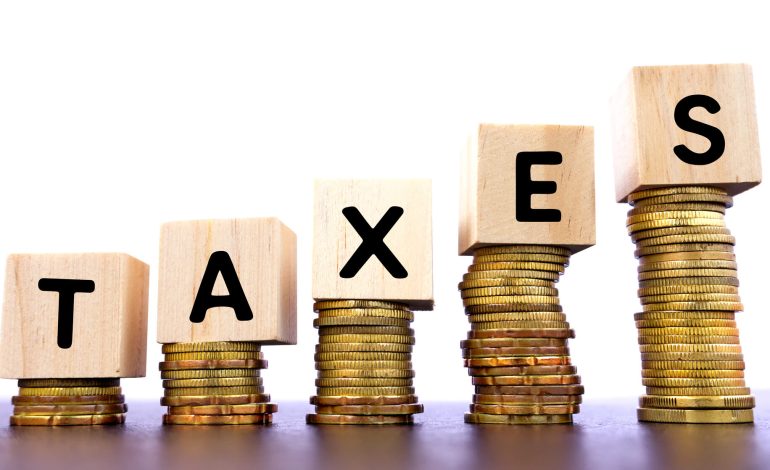The Wyoming Senate has passed Senate File 69 (SF 69), a bill proposing a 50% property tax reduction for residential properties up to $1 million.
The measure passed on Tuesday with a 23-8 vote, advancing to the House for further consideration.
Last week, senators debated reducing the relief to 25% of assessed property value. However, Sen. Tara Nethercott, R-Cheyenne, successfully introduced an amendment to restore the full 50% tax reduction. The amended bill also includes a two-year sunset clause and excludes a state-funded backfill for lost revenue.
Senate President Bo Biteman, R-Ranchester, emphasized the significance of the bill, saying it was a long-overdue response to taxpayers’ concerns.
“The people of Wyoming are tired of excuses. They want action, and they want us to deliver for them,” Biteman said.
Senate Vice President Tim Salazar, R-Riverton, hailed the measure as “historic property tax relief” but acknowledged the lack of fanfare around its passage.
Some senators expressed concerns about the bill’s impact on rural and smaller communities that have not faced the sharp property tax increases seen in larger counties.
Sen. Stacy Jones, R-Rock Springs, proposed an unsuccessful amendment to use state savings to backfill 12.5% of the lost revenue for local governments. She warned that a 50% cut in areas like Rock Springs, where property taxes have increased by only 19.5% from 2019 to 2023, could devastate essential services such as snow removal and community centers.
“We must think about the consequences for all communities across Wyoming,” Jones said.
Sen. Chris Rothfuss, D-Laramie, opposed using the state’s savings for backfill, arguing that it would be fiscally unsustainable.
“Our savings were not designed to cover citizen tax cuts,” Rothfuss said.
Sen. Larry Hicks, R-Baggs, voiced concerns over the bill’s “one size fits all” approach, suggesting that the Senate should have focused on reducing state-controlled property taxes rather than affecting local government revenues.
An amendment by Sen. Eric Barlow, R-Gillette, was approved, allowing homeowners to opt out of the exemption and pay their full property tax amount if they choose to support local services.
Senate leaders defended the decision to exclude a state backfill, stating that tax relief should be straightforward and not involve moving funds from one pocket to another.
One significant area of concern is the potential effect on emergency services, particularly fire districts, which are funded exclusively through property taxes.
Fire districts, such as Laramie County Fire District No. 5 in Pine Bluffs, have voiced alarm, warning that the 50% tax reduction would halve their budgets. The district cited potential job losses, higher response times for emergencies, and operational challenges.
“Cutting budgets leads to job losses, and cutting jobs causes delays in response. Delays in response impact life safety and property loss,” the district said in a statement.
The district urged residents to contact legislators to maintain funding for emergency services.
SF 69 must now pass the House and receive Governor Mark Gordon’s signature to become law. If approved, the property tax exemption would apply to the tax year beginning January 1, 2025.
Some House members, including Representatives Ann Lucas (R-Laramie County), Tony Locke (R-Natrona County), and Steve Johnson (R-Laramie County), have advocated strongly for property tax relief. They contend that rising taxes are forcing residents out of their homes, and the issue was a top concern during the 2024 campaign.
With input from Gillette News Record, Oil City News, and KGAB AM 650.










The latest news in your social feeds
Subscribe to our social media platforms to stay tuned